General
Jehovah’s Witnesses Open Historical Museum in Edo
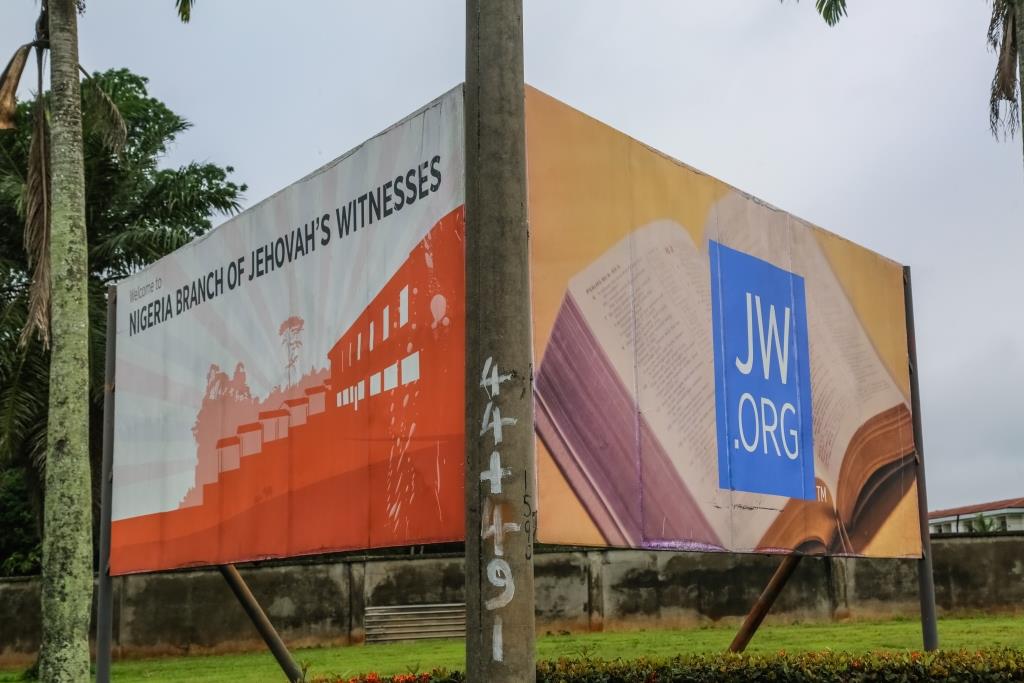
By Modupe Gbadeyanka
Jehovah’s Witnesses in Nigeria have opened a historical museum in Igieduma Village, Edo State, documenting activities of the religious group in the country for the past 100 years.
The facility was inaugurated recently under an initiative called 100 Years of Courage, highlighting how some people came together to establish the sect in Nigeria in 1921.
Nigeria is a diverse country with a rich cultural and historical heritage. The people making up the country have various social, religious and cultural experiences dating back several centuries.
The advent of Christianity, with its increasingly various denominations, ushered in a new era in the history of the people making up Nigeria. Jehovah’s Witnesses make up a significant part of the Christian populace of Nigeria.
The museum depicts the various influence of non-witness actors that impacted the spread of their activities, both positive and negative.
Early Days
The history of the Witnesses in Nigeria began with the arrival of Claude Brown, also known as Bible Brown, in 1921.
The Museum shows that the Witnesses first established their branch office in Nigeria in the same year and started their evangelical ministry. From the small beginning, they set about reaching the major towns and hinterlands of Nigeria, the missionaries converting local people who in turn helped to spread the Bible message further afield. With limited transportation and mass communication methods available in the early 20’s and 30’s, the museum depicts how the Witnesses used a variety of initiatives, including the sound car, megaphones and phonographs, to spread the message.
Challenges
The museum further documents how the spread of the word of God by Jehovah’s Witnesses in Nigeria had been spiced with various challenges. These included denial of physical access to areas they desired to preach in by local chiefs and religious priests, beatings of new converts by relatives who misunderstood the Witnesses’ beliefs, arson, and in some extreme cases, murder.
The Nigerian civil war brought a new dimension to the challenges faced by Jehovah’s Witnesses in Nigeria. Pictures and other artefacts in the museum show that the Witnesses in the former Biafran territory were cut off from their Nigerian brothers. With the resulting limited contact, the flow of Bibles and Bible-based publications became strained.
However, in remarkable demonstrations of faith, the Witnesses on both sides risked their lives and freedom to cross the lines to deliver publications and directions to those in the war zone. In heart-touching personal stories, the museum captures the experiences of specific witnesses who took part in the risky undertaking of crossing the war zones to reach their brothers and sisters on the other side.
A cocktail of ingenuity and faith was often on display. Sadly, some Witnesses were killed by soldiers and others for refusing to fight in the war in obedience to God’s command in the Bible – You must not kill (EXODUS 20:13). In interesting twists, some of the soldiers who fought in the war, including some who encountered or even killed Jehovah’s Witnesses for refusing to join the war, became Jehovah’s Witnesses themselves after the war, some becoming elders and missionaries.
In all, the civil war and other challenges did not appear to break the integrity of the Witnesses who continued preaching all through the war and even increased in number, as statistics available at the museum show.
Conventions
The museum featured some of the major milestones in the history of Jehovah’s Witnesses in Nigeria – their conventions or large gatherings. Each year, Jehovah’s Witnesses invite their neighbours, friends, and family to join them for these large gatherings. From Lagos to Port Harcourt, the museum chronicled the district and international convention history of the witnesses. The international conventions involved invited foreign guests and speakers and simultaneous translation into multiple Nigerian languages. The baptism of new converts was a constant feature of these conventions. These large gatherings strengthened the unity of the witnesses and gave immeasurable impetus to their work in the country.
An Interactive Museum
The museum is made to meet modern standards and expectations of information consumption. The museum has audio-video media which tourists can play or view through a special wifi-bluetooth connection and installed TV screens. These help visitors to get additional information about the historical event or character on display but also to relive the event. Tourists are encouraged to come with their phones, tablets or other handheld devices with either Bluetooth or wired headsets to have a more interactive experience.
Tourists React
The first set of tourists to the museum commended the group for the project.
Seun Faluyi, a tourist, said, “It is phenomenal to see how much opposition Jehovah’s Witnesses faced in the early years. But they were not deterred. They were brave; they were courageous. Celine, a teenage tourist, said: I like how interactive it is. Sometimes you forget how much history you have… According to Ayinola Olusoyan, I have been around Jehovah’s Witnesses for some time, although I am not one of them. Today is a great day for me to be here.”
How to book a visit
According to the spokesman of Jehovah’s Witnesses, Olusegun Eroyemi, the public, journalists, tourists, and academics are invited to visit the museum.
The Museum is located at Igieduma village, Uhunmwonde Local Government, Edo State. To book a visit, an individual or group may visit jw.org, click on About Us, select Bethel Tours, and then search for Nigeria on the drop-down menu. Then scroll to Make a Reservation, then click on Create an account to enable them to receive details of the visit reservation by text or email. They would be required to follow the prompts to complete their reservation. The visit is free, with an assigned tour guide.
General
Senate Passes Electoral Act Amendment Bill, Blocks Electronic Transmission of Results
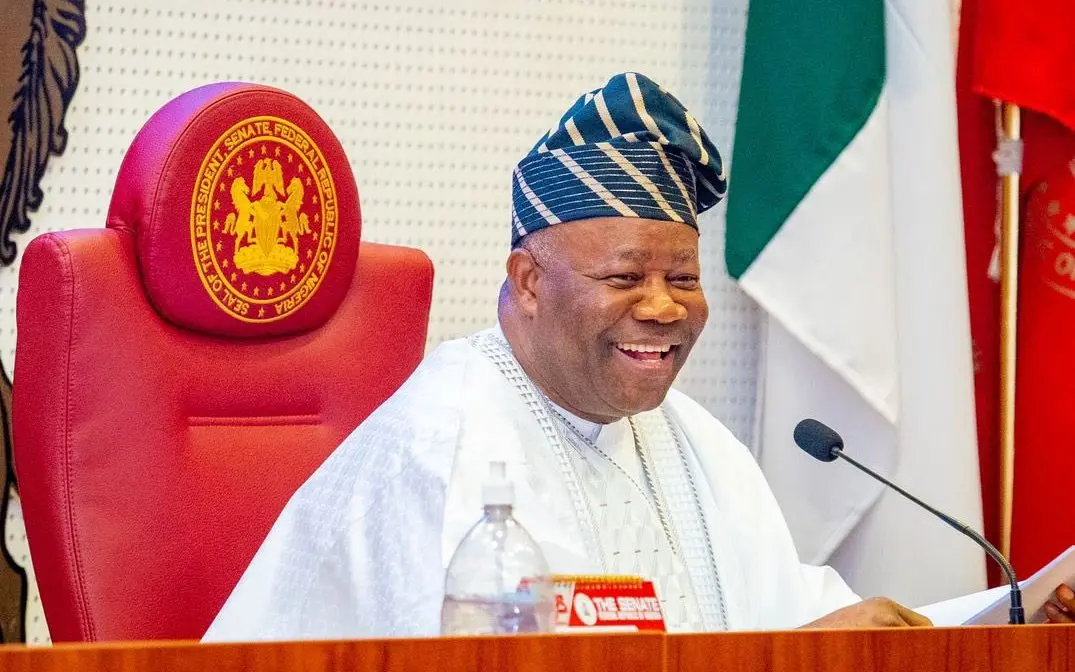
By Modupe Gbadeyanka
The Senate on Wednesday passed the bill to amend the Electoral Act of 2022 after delays, which almost pitched the institution against several Nigerians.
Last week, the upper chamber of the National Assembly headed by the Senate President, Mr Godswill Akpabio, set up a panel to look into the matter, with the directive to submit its report yesterday, Tuesday, February 3, 2026.
However, after the report was submitted yesterday, the red chamber of the parliament said it was going to take an action on it on Wednesday.
At the midweek plenary, the Senate eventually passed the Bill for an Act to Repeal the Electoral Act No. 13, 2022 and Enact the Electoral Act, 2025.
However, some critical clauses were rejected, including the proposed amendment to make is mandatory for the Independent National Electoral Commission (INEC) to transmission election results electronically from polling units to the INEC Result Viewing (IReV) portal.
The clause was to strengthen transparency and reduce electoral malpractice through technology-driven result management.
It also rejected a proposed amendment under Clause 47 that would have allowed voters to present electronically-generated voter identification, including a downloadable voter card with a unique QR code, as a valid means of accreditation.
The Senate voted to retain the existing 2022 provisions requiring voters to present their Permanent Voter’s Card (PVC) for accreditation at polling units, and upheld the provision mandating the use of the Bimodal Voter Accreditation System (BVAS) or any other technological device prescribed by the electoral umpire for voter verification and authentication, rather than allowing alternative digital identification methods as proposed in the new bill.
The Senate also reduced the notice of election from 360 days to 180 days, with the timeline for publishing list of candidates by INEC dropped from 150 days to 60 days.
General
Amupitan Says 2027 Elections Timetable Ready Despite Electoral Act Delay

By Adedapo Adesanya
The Independent National Electoral Commission (INEC) has completed its timetable and schedule of activities for the 2027 general election, despite pending amendments to the Electoral Act by the National Assembly.
INEC Chairman, Mr Joash Amupitan, disclosed this on Wednesday in Abuja during a consultative meeting with civil society organisations.
Mr Amupitan said the commission had already submitted its recommendations and proposed changes to lawmakers, noting that aspects of the election calendar might still be adjusted depending on when the amended Electoral Act is passed.
He, however, stressed that the electoral umpire must continue preparations using the existing legal framework pending the conclusion of the legislative process and presidential assent to the revised law.
According to him, the commission cannot delay critical preparatory activities given the scale and complexity involved in conducting nationwide elections.
The development highlights INEC’s commitment to early planning for the 2027 polls, even as stakeholders await legislative clarity that could shape parts of the electoral process.
Yesterday, the Senate again failed to conclude deliberations on the proposed amendment to the Electoral Act after several hours in a closed-door executive session. The closed session lasted about five hours.
Lawmakers dissolved into the executive session shortly after plenary commenced, to consider the report of an ad hoc committee set up to harmonise senators’ inputs on the Electoral Act Amendment Bill.
When plenary resumed, the Senate President, Mr Godswill Akpabio, did not disclose details of the discussions on the bill.
Despite repeated executive sessions, the upper chamber has yet to pass the bill, marking the third unsuccessful attempt in two weeks.
The Senate, however, said it will not rush the bill, citing the volume of post-election litigation after the 2023 polls and the need for careful legislative scrutiny.
Last week, the red chamber of the federal parliament constituted a seven-member ad hoc committee after an earlier three-hour executive session to further scrutinise the proposed amendments.
General
REA Expects Further $1.1bn Investment for New Mini Power Grids
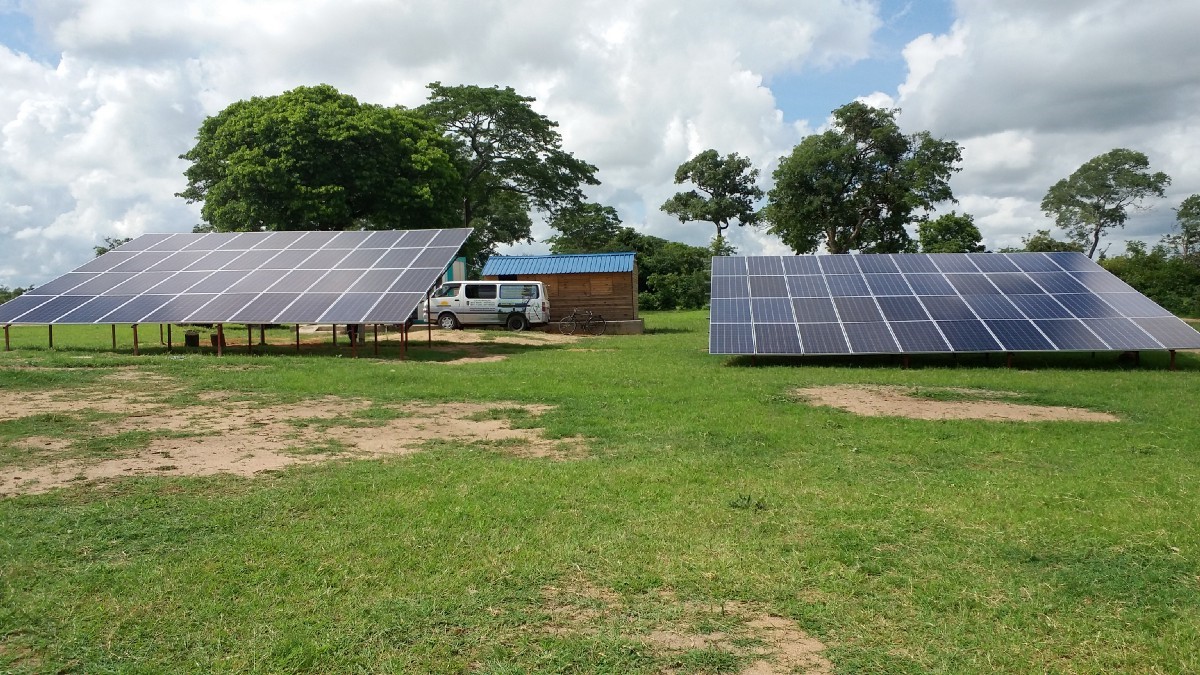
By Adedapo Adesanya
The Managing Director of the Rural Electrification Agency, (REA), Mr Abba Aliyu, is poised to attract an estimated $1.1 billion in additional private-sector investment to further achieve the agency’s targets.
He said that the organisation has received a $750 million funding in 2024 through the World Bank funded Distributed Access through Renewable Energy Scale-up (DARES) project.
He added that this capital is specifically intended to act as a springboard to attract an estimated $1.1 billion in additional private-sector investment, with the ultimate goal of providing electricity access to roughly 17.5 million Nigerians through 1,350 new mini grids.
Mr Aliyu also said that the Nigeria Electrification Project (NEP) has already led to the electrification of 1.1 million households across more than 200 mini grids and the delivery of hybrid power solutions to 15 federal institutions.
According to a statement, this followed Mr Aliyu’s high-level inspection of Vsolaris facilities in Lagos, adding that the visit also served as a platform for the REA to highlight its decentralized electrification strategy, which relies on partnering with firms capable of managing local assembly and highefficiency project execution.
The federal government, through the REA, underscored the critical role the partnership with the private sector plays in achieving Nigeria’s ambitious off-grid energy targets and ending energy poverty.
Mr Aliyu emphasized that while public funds serve as a catalyst, the long-term sustainability of Nigeria’s power sector rests on credible private developers who are willing to invest their own resources.
He noted that public funds are intentionally deployed as catalytic grants to ensure that the private sector maintains skin in the game which he believes is the only way to guarantee true accountability and the survival of these projects over time.
-

 Feature/OPED6 years ago
Feature/OPED6 years agoDavos was Different this year
-
Travel/Tourism9 years ago
Lagos Seals Western Lodge Hotel In Ikorodu
-

 Showbiz3 years ago
Showbiz3 years agoEstranged Lover Releases Videos of Empress Njamah Bathing
-

 Banking8 years ago
Banking8 years agoSort Codes of GTBank Branches in Nigeria
-

 Economy3 years ago
Economy3 years agoSubsidy Removal: CNG at N130 Per Litre Cheaper Than Petrol—IPMAN
-

 Banking3 years ago
Banking3 years agoSort Codes of UBA Branches in Nigeria
-

 Banking3 years ago
Banking3 years agoFirst Bank Announces Planned Downtime
-

 Sports3 years ago
Sports3 years agoHighest Paid Nigerian Footballer – How Much Do Nigerian Footballers Earn





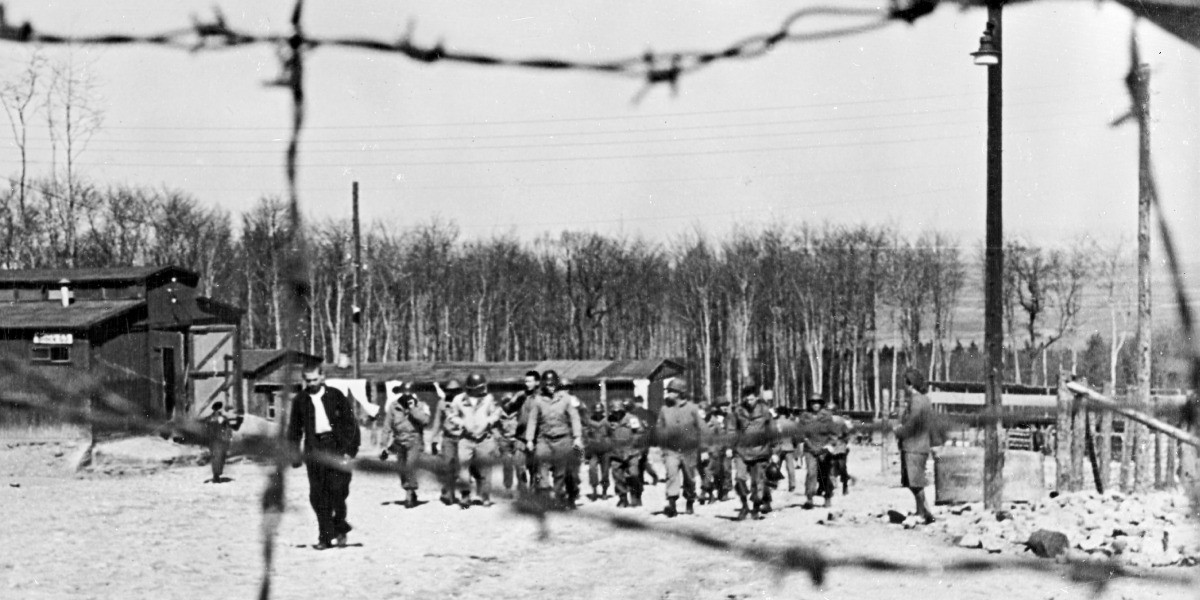








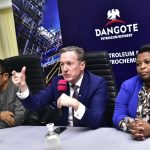

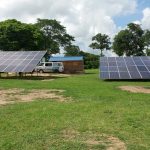
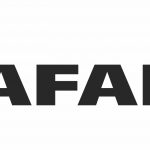
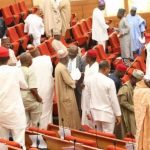

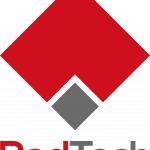

1 Comment